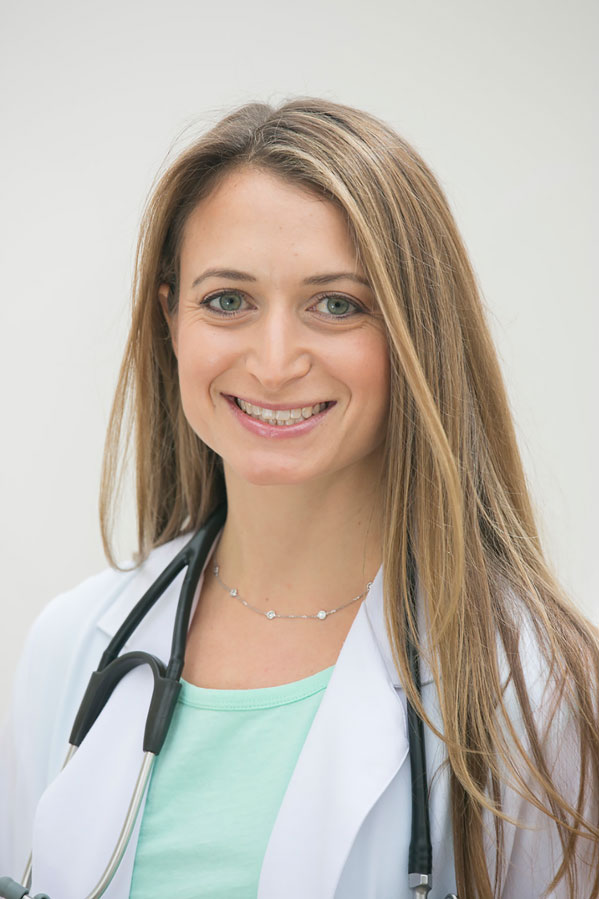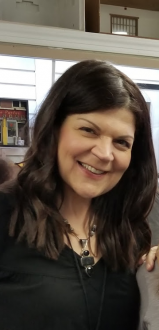There is a small but ever-growing segment of the population adding naturopathic doctors and regimens to their health care teams. Not surprisingly, this branch of medicine is gaining in popularity due to its focus on preventative care centered on the “whole person.” It seeks to understand individual patient needs in greater detail, with an aim of eliminating traditional pharmaceuticals and replacing them with other more natural treatments.
I spoke with Carine Bonnist, N.D., a member of the four-person medical team at Shalva Clinic, a Westport-based naturopathic medicine practice, to get up to speed on this trend and learn more about what led her to choose this field, one that is scientifically based and administered by doctors who receive medical degrees.
Bonnist is a graduate of the National University of Natural Medicine in Portland, Oregon, one of seven fully accredited schools in North America offering a doctor in naturopathic medicine — N.D. or N.M.D. — and a doctor of naturopathy — N.D. — degree. These are four-year programs, as in traditional medicine, the last two years being intensely focused on specific modalities, with a heavy emphasis on the study of behavioral medicine, natural therapies and clinical nutrition, among others.
This mind-body approach, according to Bonnist, seeks to understand and diagnose a patient’s condition with an aim to get at the cause of the problem using the least invasive procedures and, in some situations, eliminate the need for prescription drugs and their many harmful side effects. In the states of Connecticut and New York, naturopathic doctors are not able to write prescriptions — in some states they are — but will work with a person’s primary care physician when they are needed.
The website for INM, the Institute for Naturopathic Medicine, quotes its board chair, Michelle Simon, Ph.D., N.D., who offers an overview of the discipline: “Consumers are seeking wellness, prevention and health creation beyond disease management. Because of their deep experience in evidence-based alternatives that expand patient choice, naturopathic doctors are increasingly recognized as a vital part of the health care team.”
I asked Bonnist what constitutes “evidence-based” treatment. “Nutraceuticals (supplements), lifestyle changes, diet and sleep are key components of the treatment plan,” she says. “The majority of people who seek out naturopathic medicine are fed up with the standards in traditional medical practices today and the lack of empathy exhibited by some doctors.” Diagnostics are used, as they are in traditional medicine, but with a more thoughtful, individualized approach. These can include blood tests and specialty testing such as stool panels; nutrient deficiencies analysis; and the resting state of adrenal glands, used to diagnose adrenal fatigue.
These functional medicine tests, together with their more in-depth personal diagnostics and evaluations, are driving the popularity of naturopathic physicians. “There is nothing routine about these tests,” Bonnist says. “They are often more comprehensive and specialized, performed by vetted specialty labs that are well-known in the naturopathic world. “
How Bonnist came upon this career is unconventional as well. A graduate of Greenwich Academy, she obtained her undergraduate degree from the University of North Carolina, Chapel Hill, attending on a full vocal scholarship. Clearly, her first love was music and she quickly cites the common bond between doctors of medicine and musical aptitude and talent. Majoring in psychology, she did not follow a pre-med route, but rather became attracted to the field by a general practitioner in traditional primary care who had a penchant for this natural branch of medicine.
Raised in a health-conscious household, this resonated with her and ignited her passion. Now, back in her native Connecticut following a two-year period honing her skills in San Francisco, Bonnist is enjoying the freedom of her career at Shalva Clinic and the ability to connect with her patients in an intimate way, typically spending 90 minutes on the first appointment getting to know them and understanding their mind-body dynamic.
At Shalva there are four practicing naturopathic doctors and they have subspecialties much as they would in a traditional general practice. Bonnist’s focus is one of the busiest and growing daily — anti-aging. She tells me of her passion for cardiovascular health, too, not startling news given the heart and feeling that she employs in dealing with her patients. “One of the wonderful things about naturopathic medicine is that we really connect with our patients,” she says. “People don’t get sick as much, because of the focus on preventative care, so years down the road they will be saving money. It really is an investment in your health.”
It’s hard to argue with that.
For more, visit shalvaclinic.org.


